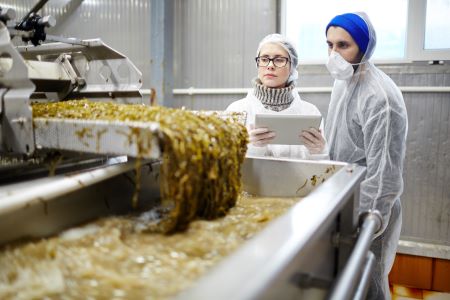From brain drain to talent remain: Keeping our researchers in Canada
Guest ContributorFebruary 26, 2025
By Mercedes Rose, Alexa D'Addario, Stephen Holland, Thomas Bailey and Keaton Sinclair (photos left to right below)
Stephen Holland and Mercedes Rose are the current co-presidents of the Ottawa Science Policy Network (OSPN). Thomas Bailey, Alexa D’Addario and Keaton Sinclair are general members of the OSPN (social media: @OttawaSciPolNet).
.jpg)




Canada’s skilled researchers are the backbone of Canadian innovation and productivity.
For many years Canadians have been world leaders in scientific discovery and invention: life-saving medical breakthroughs such as insulin, pacemakers and HIV/AIDS medication, along with technological marvels like the Canadarm, incandescent light bulbs and the telephone. Recently, Canadians have been pioneers of the growing artificial intelligence landscape, where Canadian Geoffrey Hinton was a recipient of this year’s Nobel prize in physics.
These innovations were the product of hard work, skill and investment. Encouraging the research that created these innovations means having strong infrastructure, funding for startups and support for researchers.
The future of Canada’s economy and the wellbeing of Canadians rely on supporting research and development. Scientific research creates employment opportunities in several sectors as institutions need to be built, maintained and supported.
Research also creates high-paying jobs and companies that contribute to economic and productivity growth. Importantly, research ensures Canadians have access to groundbreaking technology in medical care, infrastructure and agriculture.
However, despite a strong history, Canada is struggling to adapt and remain competitive on a global scale. The future of Canadian research is unclear, forcing the next generation of researchers are forced to consider better opportunities elsewhere.
Findings from the Ottawa Science Policy Network’s (OSPN) 2024 Brain Drain Survey show that nearly two in three graduate researchers are considering leaving Canada upon completion of their education, as Canada fails to compete with not only the United States but peer countries of similar market scale. Unless Canada can better retain research talent, it risks losing that talent to other countries.
The stakes aren’t small: nearly $250 million in federal scholarships is awarded yearly to young researchers who may complete their education only to ultimately discover a lack of domestic opportunities and career paths.
The implications of this “brain drain” on Canada’s position in the global economy are potentially catastrophic in the long game. Without a next generation of scientists, startup founders, technical experts and other key players, Canada’s status as a high-income country is in jeopardy. In order to capitalize on this existing investment, retain its talent and remain competitive in the innovation game, it is imperative that Canada adjusts its strategy regarding institutional research.
Better job opportunities, higher salaries and the equipment and facilities required to perform their research are what draw Canadian researchers to other countries, according to the OSPN survey.
The prospect of financial security is a significant pull factor – graduates in a worse financial situation during their education reported being far more likely to leave Canada. With nearly half of graduate researchers being financially insecure, this presents a major loss.
Strong innovation strategy needed
In an effort to combat this, the federal government has recently invested $2.6 billion to improve academic research funding. This investment provided a much-needed increase to the number and value of federal scholarships and fellowships for the next generation of Canadian researchers.
These investments are a great start; however, more is required to provide adequate funding to early-career researchers, particularly beyond the academic setting, to prevent further brain drain.
To keep our talent here we need a plan to promote the long-term stability of our research ecosystem. A key pillar will be the development of a strong innovation strategy, particularly to prioritize innovation output – turning research ideas into marketable products and services.
Better collaboration between government and industry to boost R&D expenditure and allow startups to grow into sustainable, competitive business models is necessary. Without strong, continuous support from the government to allow their ideas to be successful, our innovators will go to where they can succeed.
Collaboration with not only the federal government but academia as well is crucial for innovative success. University-industry collaborations are an area in which Canada currently is succeeding, ranking 5th in the global innovation index.
To maintain this momentum, we need better support for academic researchers to ensure their financial security. Increasing funding for trainees, post-doctoral positions and permanent research roles, such as Canada Research Chairs, will stabilize and invigorate our academic sector. This investment not only retains talent but also builds a robust research ecosystem.
Canada has immense potential to be an innovation superpower, boasting unique advantages including access to natural resources, good quality of life and a strong relationship with the United States, the world’s largest economy.
By fostering an environment in which young researchers can thrive through bold action by the Canadian government, Canada can secure its economic future and position as a global innovation leader.
R$
Events For Leaders in
Science, Tech, Innovation, and Policy
Discuss and learn from those in the know at our virtual and in-person events.
See Upcoming Events
You have 1 free article remaining.
Don't miss out - start your free trial today.
Start your FREE trial Already a member? Log in
By using this website, you agree to our use of cookies. We use cookies to provide you with a great experience and to help our website run effectively in accordance with our Privacy Policy and Terms of Service.





